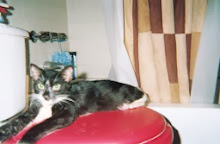Gone Girl by Gillian Flynn
Publisher:
Crown
Published:
June 5, 2012
ISBN:
978-0297859383
Pages:
432
Rating:
4 out of 5
Book Summary: Marriage can be a real killer.
One of the most critically acclaimed
suspense writers of our time, New York Times bestseller Gillian Flynn takes
that statement to its darkest place in this unputdownable masterpiece about a
marriage gone terribly, terribly wrong. The Chicago Tribune proclaimed that her
work "draws you in and keeps you reading with the force of a pure but
nasty addiction." Gone Girl's toxic mix of sharp-edged wit and deliciously
chilling prose creates a nerve-fraying thriller that confounds you at every
turn. (I purposely didn’t include the
rest of the summary and I explain why in my review. If you’d like to read the
rest, look up Gone Girl on Goodreads
or visit Gillian Flynn’s website)
My Thoughts: When Nick Dunne and Amy Elliott meet
they’re instantly attracted to each other and intrigued by one another. Nick’s dazzled by Amy’s beauty and delighted
with her personality. Amy thought Nick
was adorable. When Nick was around Amy, he couldn’t take his eyes off of her. Nick doted on her which she enjoyed. Amy wasn’t one of those
women who insisted her social life was Nick’s social life. Nick went out with his friends and work
colleagues, frequently. Amy didn’t
begrudge him plenty of time in front of the TV.
And she didn’t hang all over him
at parties, eagle-eying his behavior. Nick could mingle with and speak to whomever
he wished when they went out together. Amy
was the type of woman many guys imagine meeting and marrying but rarely do. She
may not have been perfect, but she was a little too good, and too unusual, to be true. Nick
didn’t notice this, of course. Nick was happy with Amy in his life. He was in love
with the Amy he saw everyday. As a
result, Nick was on his best behavior, the kind of guy many woman would love to
be with. After Nick and Amy married, they remained the same people they were
before marriage, unlike many couples who relax their characters and end up
displaying unpleasant and unappreciated traits and behavior hidden from view
prior to the wedding and the “honeymoon period”.
To Nick’s
utter dismay, his marriage had a honeymoon period; just longer than most at 2
-3 years. But when the Dunne’s marriage went
bad, it crashed and burned. By their
fifth anniversary, when the story of Nick and Amy Dunne begins in earnest, they’re
barely speaking a civil word to each other.
On the day of their fifth anniversary, all hell breaks loose and pure
insanity pervades the world of the Dunnes.
I’m not going to divulge what any of the craziness is. I read this book without any knowledge of the
story or characters. I think it was the
best way to read this story. I was
completely unaware of what happens to the Dunnes or how nutty and bizarre things become in Amy and Nick’s life. And things become nasty, painful and frightening.
Flynn has an
amazing creative mind. Gone Girl is
divided into three sections. Each section has its own plot within which there
are twists and turns, shocks and surprises and complex ideas. In addition, the story is also very funny at
times and completely entertaining. Flynn
has done an incredible job developing Nick and Amy into real people. Although I can’t relate to or sympathize with
either of them, Flynn does a very good job helping the reader understand why
Amy is such a crazy, manipulative woman and why Nick needs everyone’s approval.
The secondary characters are also
recognizable and some, such as Andie, are amusing, especially when described by
Amy. Flynn’s writing is exceptional and
thoroughly enjoyable.
I was
completely hooked on this book until about halfway through the second section. I felt at that point the story became a
little ridiculous, out-of-control and predictable for most of the remainder of
the story. I was also aggravated by some
of the characters, although that’s not necessarily a bad thing. And, even though I expected much of what
happened in the rest of the story, the writing was still wonderful, certain
characters were still their delightfully nutty selves and I was still being
thoroughly entertained. Things could be
much worse! So, although I preferred the
first part of the book, I never considered putting Gone Girl down for good before I finished it.
I highly
recommend this book to anyone who hasn’t read it. I’m looking forward to reading Gillian Flynn’s
other books: Dark Places and Sharp Objects.










































